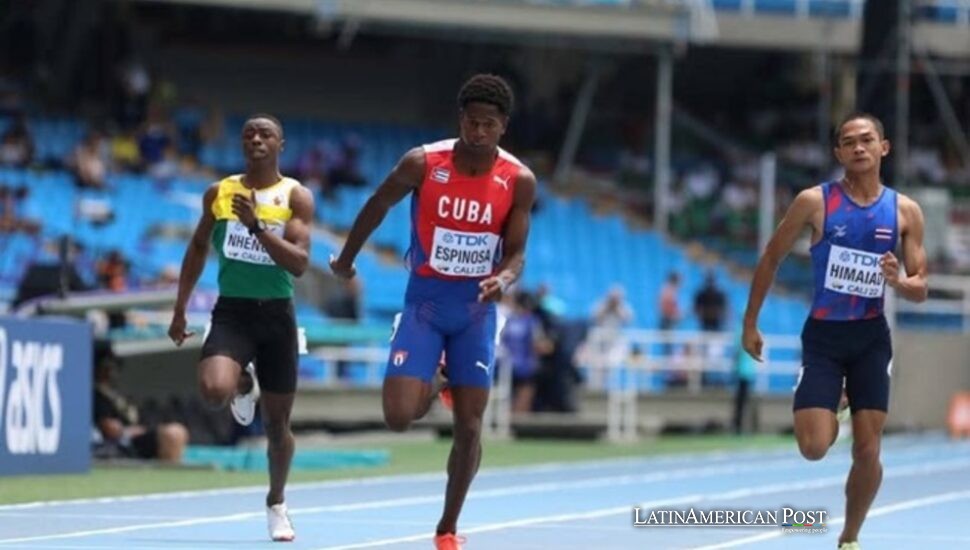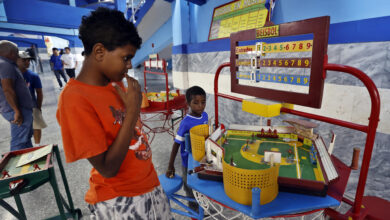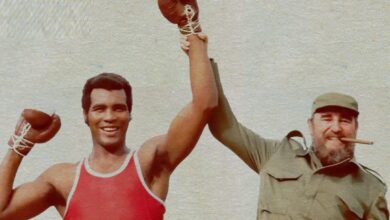Cuban Reynaldo Espinoza Lights Up Málaga—and Edges Closer to History

Lightning cracked above the Mediterranean coast before dusk, but the real electricity came from Cuba’s Reynaldo Espinoza. His 10.03-second sprint at the Ciudad de Málaga meet confirmed that the island’s sprinting tradition remains fierce—and perhaps ready for another Olympic chapter.
Chasing the Sub-10 Ghost Under Andalusian Skies
The air in Málaga was thick and buzzing when Reynaldo Espinoza crouched into the blocks. A warm sea breeze had died just minutes earlier, leaving the track humid and slick—conditions that either slow leg turnover or, strangely, enhance muscle recoil.
Espinoza felt the boost.
Bursting out of the drive phase, he separated from Nigeria’s Alaba Olukunle and Colombia’s Neiker Abello with clinical precision. He crossed the line in 10.03 seconds, just a blink from the holy grail of sprinting: a sub-10 clocking. According to EFE, the 22-year-old Cuban said the result felt like “a blessing and a curse.” His heart dropped when the scoreboard lit up.
Still, the numbers speak volumes.
Dr. Carlos Balsalobre, a biomechanics expert, told Spain’s national broadcaster that Espinoza’s acceleration metrics are nearly identical to those of former world champion Christian Coleman at the same age. “With a little more neuromuscular refinement,” Balsalobre said, “he could go sub-10 in Paris.”
It was the kind of run that doesn’t just turn heads—it starts conversations.
From Sand to Sky: Cuba’s Track Talent Makes It Count
Espinoza wasn’t the only Cuban grabbing attention in Málaga.
Maykel Massó, the Olympic bronze medalist in the long jump, flew 7.89 meters to win comfortably. But for Massó, this wasn’t about the numbers—it was about testing rhythm after an off-season Achilles injury. He told EFE that he has been working with the variable-stride drills developed by legendary Cuban coach Juan Toral, which help maintain speed while reducing ankle strain.
Then came Roxana Gómez, Cuba’s quarter-mile star. She lowered the meet record in the 400 meters to 50.93, a time that would’ve landed her in last year’s World Championship final. According to sports physiologist Lourdes Velázquez, Gómez’s performance is a testament to Cuba’s high-volume relay training, where runners alternate between 300- and 400-meter reps at altitude to delay lactic acid fatigue.
Cuban track is known for its depth, but in Málaga, it looked like an entire system clicking into gear—just weeks before the biggest stage of all.
Málaga’s Coming-Out Party on the Global Stage
This year’s Ciudad de Málaga meeting carried more weight than ever. For the first time, it was part of the World Athletics Continental Tour Challenger circuit, putting it just a notch below Diamond League status.
That bump mattered. It meant ranking points, appearance fees, and international scouts.
Meeting director Miguel Martínez told reporters the event drew 500 entries from 47 countries. What was once a regional tune-up had become Europe’s summer sprinting showcase.
Local officials were thrilled. Economists from the University of Málaga estimated that the meet generated €1.4 million in hotel and restaurant revenue. There’s already talk of turning this success into leverage for a 2030 Olympic hosting bid.
International stars showed up, too. Venezuela’s Kelvin Padrino won the men’s 400 in 45.47. New Zealand’s Lauren Bruce tossed the hammer 67.48 meters. British sprinter Desiree Henry, a relay medalist from Rio 2016, clocked 11.28 into a slight headwind—a time that in still air, would likely dip below 11 flat.
The crowd noticed. And so did World Athletics.
Paris in Sight, But the Work’s Not Done
For Espinoza, Málaga was more than a medal—it was a message.
To get to Paris, he still has to win—or at least place well—at Cuba’s national trials next month in Havana. The field is loaded: seasoned veteran Yoel Islas and teenage prodigy Shainer Reginfo both loom.
But with the fastest legal time by a Cuban since 2015, Espinoza has made his case.
Cuban federation president Rolando Charroo told EFE that the Málaga result all but seals Espinoza’s ticket to the Olympics. The plan now is to send him to a European preparation camp, likely at Spain’s Sierra Nevada High-Performance Center, which sits 7,500 feet above sea level and mimics the hypoxic conditions Cuban athletes often train in at home.
That camp will offer more than altitude. It will provide competition intensity—the kind Espinoza will need when he lines up in Paris alongside the world’s best.
Still, he knows what’s waiting.
“I ran here two years ago, and maybe 2,000 people showed up,” Espinoza told reporters while signing autographs for a group of local kids. “Tonight, the stands were packed. They knew every split. It felt like a mini Diamond League.”
Also Read: Argentina Lures Muniain, Then Loses Him to Worn‑Out Football Dreams
As fireworks exploded over the Andalusian coast, Espinoza smiled. He had come within a whisper of history. And he might just be back next year to chase it again—only this time, he’ll be aiming to break that ten-second wall and stamp his name into Cuba’s long legacy of sprinting greatness.



